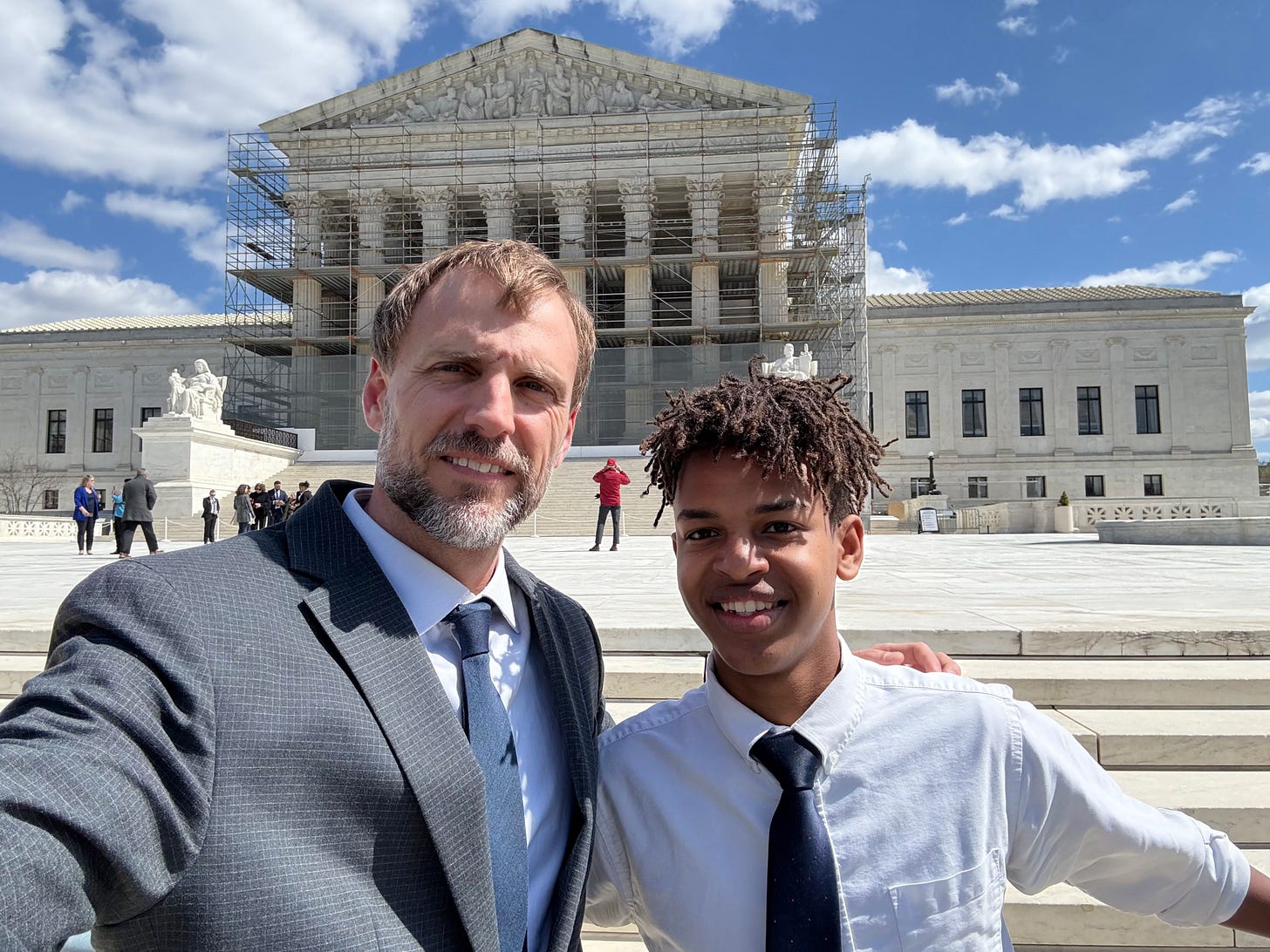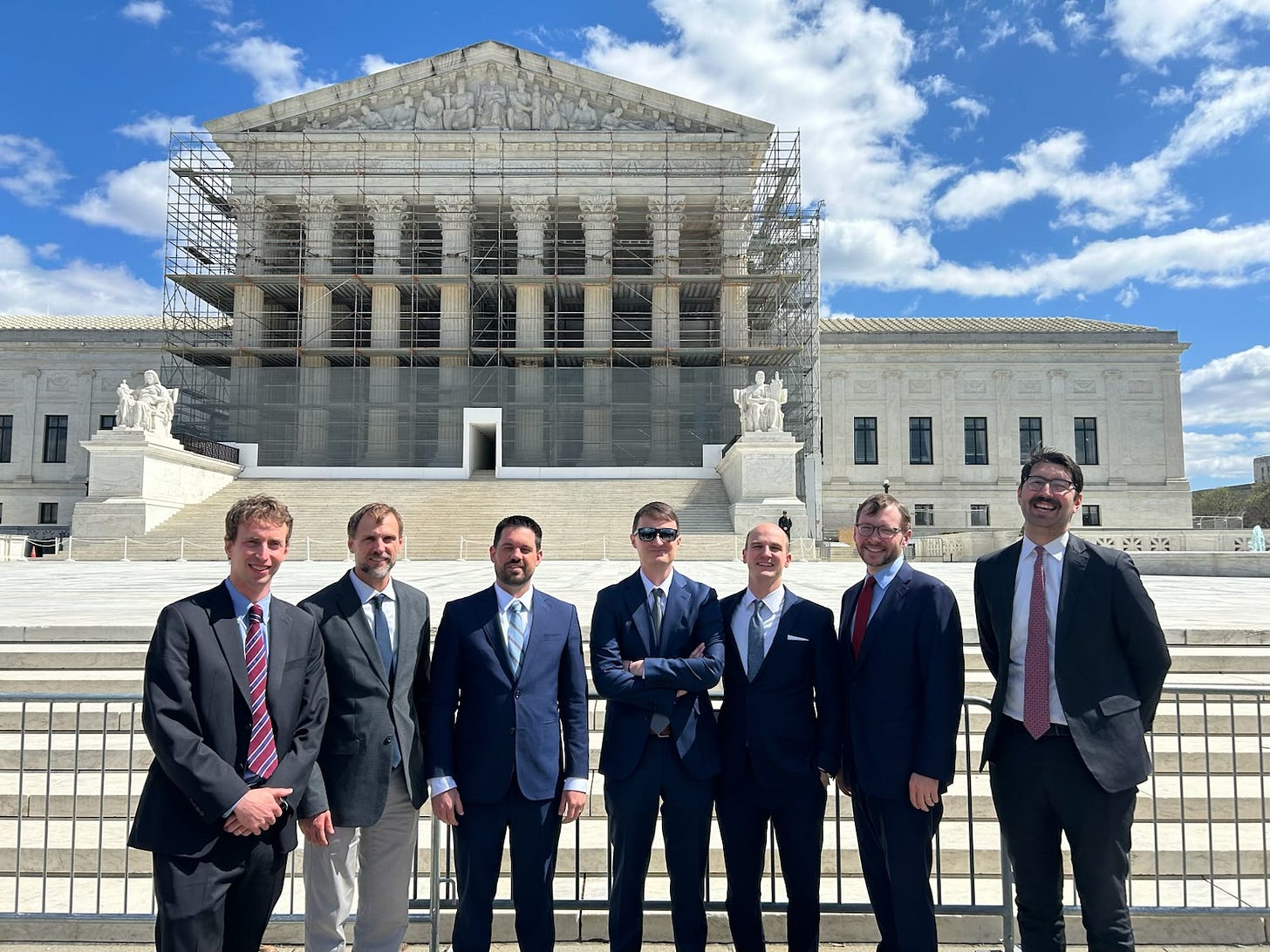That time I sued the FCC
A short story about taxation without representation
Several years ago, a friend asked if I wanted to sue the FCC. That got my interest!
The long and the short of it is that the non-delegation clause at the beginning of the Constitution prohibits Congress from delegating its powers to others. But the Supreme Court of the United States (SCOTUS) has taken a dim view of any attempt to enforce this part of the constitution for a long time. That—at least in part—is why the administrative state is so hard to challenge. SCOTUS precedent means it is almost impossible to prevent Congress from delegating its powers to unaccountable, unelected bureaucrats and agencies.
Unless SCOTUS backtracks.
My friend had a case he thought had a chance of getting to the Supreme Court, and even getting them to question their past precedent.
Universal Service
Back in the 1996, Congress decided they wanted everybody in the country to have access to “advanced telecommunications and information services.” Before that, there had been other methods of giving people access to a phone, even in places where it didn’t make much economic sense for phone companies to build out their network. Now Congress had set a very nebulous goal. No longer would “universal service” mean access to an affordable phone line. Now it could mean anything.
Congress tasked the FCC with making this happen, but they didn’t give them any money for it. So the FCC was required to tax us. Collection of money for the Universal Service Fund shows up on every phone bill. If Congress had told the FCC how much they could collect, or put any limits on it, it would have probably been fine. Or even if Congress had defined “Universal Service,” that might have been enough of a limit to keep the tax under their authority.
But the FCC can collect as much as they want and spend it on anything they want in advanced telecommunications and information services. Tomorrow the FCC could decide that smart phones and ChatGPT are part of what everybody needs access to.
But it gets worse.
The FCC doesn’t even decide how much the USF tax is going to be. Instead it has delegated it to a private company that represents the phone companies. Not surprisingly this tax that is under the phone companies’ control has ballooned to $8-10 billion dollars a year. They collect it, and they end up with most of it, since it is for services they sell.
I was happy to be part of the case, even if it just meant signing my name. Everybody should stand against taxation without representation, and if we can strike a blow against the administrative state while we’re at it, I’m game.
Going to court
Fast forward a few years, and we won in United States Court of Appeals for the Fifth Circuit.
Here is the first paragraph summary of their decision:
In the Telecommunications Act of 1996, Congress delegated its taxing power to the Federal Communications Commission. FCC then subdelegated the taxing power to a private corporation. That private corporation, in turn, relied on for-profit telecommunications companies to determine how much American citizens would be forced to pay for the “universal service” tax that appears on cell phone bills across the Nation. We hold this misbegotten tax violates Article I, § 1 of the Constitution.
(The PDF of the whole decision is below, if you are curious.)
This decision almost guaranteed SCOTUS would take the case when it was appealed, since it has been 90 years since a non-delegation case against the government was won. All parties involved wanted the Supreme Court to look at it and give a clear decision.
Fast forward a few months more, and last week I got to attend the arguments at the Supreme Court in Washington, DC with my son, Tate.
The FCC was represented by the solicitor general, which only happens for a couple of important cases each year. The phone companies hired one of the top Supreme Court litigators in the country. It was his 119th time to argue before the court. I’m sure they spent a bundle on him. Maybe they were worried about losing $8-10B/year.
Our side was represented by Trent McCotter from Boyden Gray, the guy in the middle wearing sunglasses below. It was his first time actually arguing before the court. He did an excellent job. His brief is also linked below. It begins…
Imagine Congress enacted a statute giving the Internal Revenue Service the power to raise “sufficient” revenue to “equitably” fund the federal government. Unbounded by any caps or rates, the IRS would instead be guided by a list of vague “principles” that are precatory and “aspirational only,” and the IRS could add new “principles” along the way. The IRS would even have the power to broadly redefine its scope based on an “evolving” standard the IRS itself determines. To top it off, suppose the IRS lets a privately-run tax association propose how much money should be raised each quarter, and that figure is passively “deemed approved” under penalty of law a few days later, unless the IRS intervenes.
The result would be a bureaucrat’s dream. Industry “experts” would decide how to fund the federal government, with no more fights over appropriations or political heat for income taxes. But it would be a nightmare for the Constitution, the separation of powers, and the liberty they protect.
As it turns out, no imagination is required. This nightmare scenario already exists in the form of the Universal Service Fund (USF).
The experience at the court, how I got in (a little bit of) trouble, the silly arguments the opposition raised, etc. are all different stories that will have to wait for another time.
In the meantime we wait for a decision. It will likely come in June or July.



